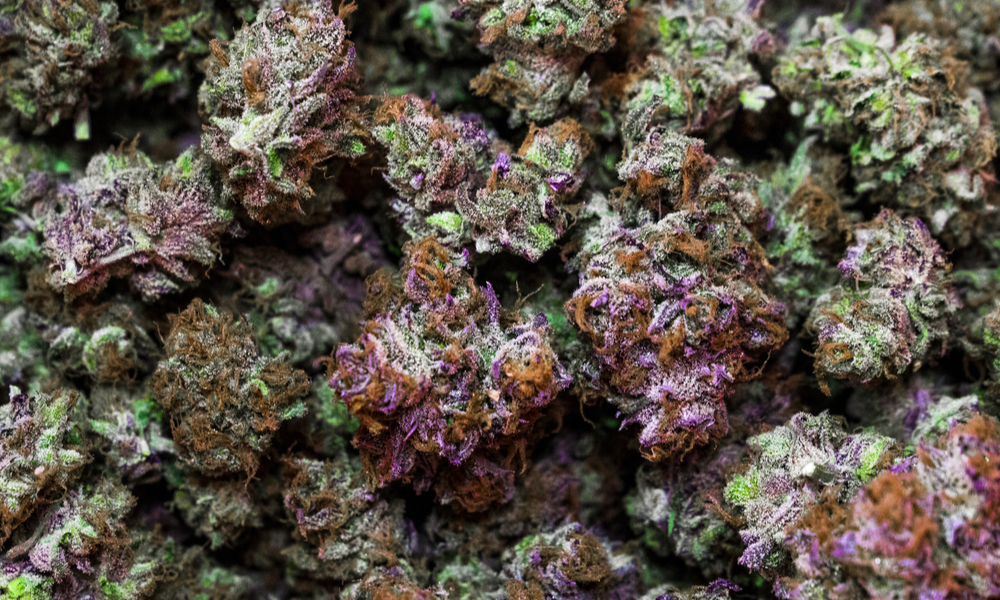Tetrahydrocannabivarin (THCV) is a cannabinoid substance found in marijuana and hemp plants. It's chemically similar to tetrahydrocannabinol (THC) but with some essential differences. Here's whatever you need to understand about THCV including the risks, benefits, distinctions, and similarities with other types of THC and more. What Is THCV? THCV is a less common cannabinoid found in some pressures of cannabis, specifically African sativa.
![]() What Is THCV (Tetrahydrocannabivarin) And What Does It Do?
What Is THCV (Tetrahydrocannabivarin) And What Does It Do?
 What Is THCV (Tetrahydrocannabivarin) And What Does It Do?
What Is THCV (Tetrahydrocannabivarin) And What Does It Do?
 THCV vs THC: What Are the Differences? Articles Analytical Cannabis
THCV vs THC: What Are the Differences? Articles Analytical Cannabis
THCV has a 3-carbon side chain instead of THC's 5-carbon side chain. This difference is subtle, however it has a visible effect on the effect profile. THCV is rather psychedelic but just about and about. What Does THCV Feel Like? THCV has a strong energy-boosting part to it, that makes it especially popular among students and athletes.
In the United States, THCV guideline is nuanced. THCV is not a Schedule I Drug, but cannabis extracts are making it somewhat unclear what the federal position is on THCV. The 2018 Farm Costs mentions that hemp plants and all derivatives of the plants are legal on a federal level, a lot of business comply with this law and still offer THCV to customers by just drawing out the compound from hemp plants.
If THCV is considered a THC analog, it might be managed in the future by the very same guidelines as THC under the Federal Analog Act. This act mentions that any compound that shares a similar molecular profile as a known prohibited substance it's consisted of in the same drug Arrange category.
What Are the Effects of THCV? Supporters of THCV report that it produces an extreme burst of energy and makes them feel blissful without the psychological cloudiness triggered by THC. The results are incredibly mild compared to THC. The effects are nearly specifically cognitive yet in some way have very little influence on headspace.
2. THCV & Cravings Some THCV users declare that it curbs their cravings. This is a common result of other focus-enhancing compounds. It's as though THCV gets rid of the interruption of other bodily processes (like cravings) in order to preserve resources and attention to cognitive jobs instead. How Does THCV Work? Cannabinoids produce biological impacts in the body by interacting with endocannabinoid receptors.
CB1 receptors are situated in the worried system and communicate with neurotransmitters in the brain to produce mind-altering impacts. Interaction with CB1 websites is what offers some cannabinoids like THC their psychoactivity. THCV is a bit tricky to understand since it's mainly a CB1 villain, implying it has the opposite impact as THC.
While researchers are still looking for to comprehend this procedure, it appears THCV is able to obstruct the effects of CB1 in low doses and promote them in high doses. CB2 receptors are found primarily in the immune system. THCV is a partial agonist of CB2, however the effects of this partial activity aren't widely known, and it apparently has no discernible effect on THCV users' experience.
As mentioned in the previous area, THCV is a CB1 villain in low dosages which is the exact opposite impact of delta 8 and delta 9 THC. This might imply that THCV neutralizes some of the psychedelic impacts of THC. This impact might describe why individuals who utilize THCV feel so clear-headed especially compared to the infamous "fogginess" induced by delta 9 THC.